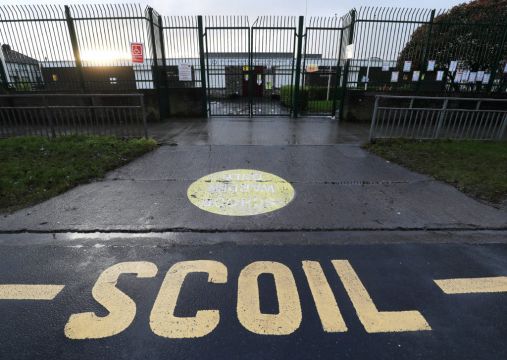Changes to the rules for close contacts in schools would put children at unnecessary risk of Long Covid, according to an infectious disease expert.
Figures from last week show almost half of the people tested for Covid-19 were aged between 0-18, prompting concern as to the number of children who are absent from school due to the need to isolate after being identified as a close contact.
Over the weekend, HSE chief executive Paul Reid said the current rule for close contacts in schools, stating children must stay home and isolate for 14 days when named as a close contact, was “probably unnecessary”.
Out of the one million students in schools nationally, Mr Reid said approximately 12,000 are currently out of class as close contacts, something which will be considered by the National Public Health Emergency Team (Nphet) when it meets on Thursday.
However, UCD Professor of Infectious Disease, Dr Jack Lambert said the rules for close contacts should not be changed as they may limit outbreaks in school settings, meaning less children will potentially get the virus and face the risks of Long Covid.
"Young adults are getting Long Covid - you can have mild symptoms, you can be 16-years-old, and you can have 15 months of chronic fatigue syndrome and all sorts of neurological problems as part of Long Covid," Dr Lambert told Newstalk.
"I wouldn't downplay the seriousness of Covid infections in any population, including young children and young adults. It's something we should take seriously," he added.
Scaling back

As part of their considerations on Thursday, Nphet will also discuss plans to radically scale back testing, moving away from the "unprecedented" mass testing regime towards a "stepwise" approach.
Under the new system testing of children under the age of 13 who are showing mild symptoms would be discouraged if they do not deteriorate over 48 hours, according to The Irish Times, as would the testing of fully vaccinated people who are also showing mild symptoms.
The discussions will be based on a paper authored by Prof Martin Cormican, the HSE's leading expert on infection control, who wrote there was a need to test "much more selectively" as Covid becomes endemic in the global population.
"Planning for a transition from open access or mass scale… testing is important because as [harm] declines, the negative impacts of testing on the current scale are likely to become disproportionate to the benefits to human health," Prof Cormican's paper adds.







